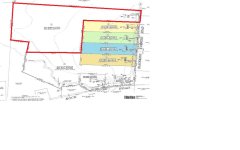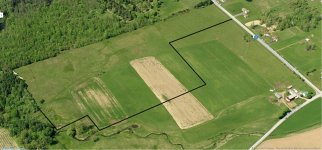Wow, $25K seems high. In 2012 we paid a hair over $2K to run a primary about 600' from the road into our property, then get a transformer installed, and another 100' of service wire to the home. At the time that was a lot of unexpected money added on to the construction cost, since normally the power company does not charge for hookup at all. But in retrospect, it seems extremely fair considering the amount of trenching, wire cost, and transformer cost. I am sure the actual cost was far higher than that, and the power company may have only charged us for whatever overage is higher than typical -- perhaps the transformer and some wire.
So all that leads me to believe $25K is the full cost with no subsidy from the power company. I guess I'd want to discuss it further with them and see where the costs are and where they could be reduced, or shared, or maybe you can do the trenching to save some. In our case, the power company subs the whole thing out to a third-party, and they just show up with a mini-hoe, wire, and transformer on a truck. There wasn't anything special about the trenching that any other person couldn't do with the proper equipment.


